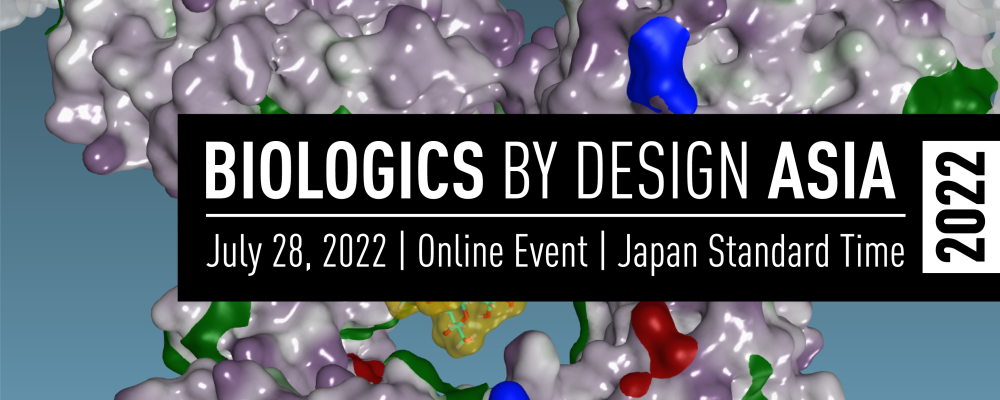09:00-10:00 (Shanghai)
Antibody Modeling and Protein Engineering
Protein Engineering / Protein Properties / Developability / Hot Spot Analysis / Antibody Modeling / Humanization / Molecular Surfaces
Delivered in English, Chinese, Japanese
Protein Engineering / Protein Properties / Developability / Hot Spot Analysis / Antibody Modeling / Humanization / Molecular Surfaces
Delivered in English, Chinese, Japanese
10:00-10:15 (Shanghai)
Morning Break
10:15-11:15 (Shanghai)
Biologics: Protein Alignments, Modeling and Docking
Protein Alignments and Superposition / Loop and Linker Modeling / Homology Modeling / Protein- Protein Docking
Delivered in English, Chinese, Japanese
Protein Alignments and Superposition / Loop and Linker Modeling / Homology Modeling / Protein- Protein Docking
Delivered in English, Chinese, Japanese
12:30-12:40 (Shanghai)
Opening Remarks
12:40-13:10 (Shanghai)
An Introduction to Biopharmaceutical Informatics
Sandeep Kumar, Distinguished Research Fellow (Biotherapeutics) and Group Leader,Boehringer Ingelheim (US)
Sandeep Kumar, Distinguished Research Fellow (Biotherapeutics) and Group Leader,
13:10-13:40 (Shanghai)
Recent Progress in the Development of FMODB: A Database of QM-based Interaction Data of Biomolecules for Drug Discovery and Protein Functional Analysis
Daisuke Takaya, Specially Appointed Associate Professor, Quantum life science and bioinformatics,Osaka University
Daisuke Takaya, Specially Appointed Associate Professor, Quantum life science and bioinformatics,
13:40-14:10 (Shanghai)
Target Proteins and Mode of Actions of Bioactive Marine Natural Products
Masaki Kita, Professor, Grad. Sch. of Bioagricultural Sciences,Nagoya University (JP)
Masaki Kita, Professor, Grad. Sch. of Bioagricultural Sciences,
14:10-14:40 (Shanghai)
Computational Approaches for Optimizing the Developability of Biotherapeutics
Andrew Henry, Principal Scientist,Chemical Computing Group (UK)
Andrew Henry, Principal Scientist,
14:40-14:50 (Shanghai)
Afternoon Break
14:50-15:20 (Shanghai)
Structure Analysis of RNA Viruses by Computational Science
Masaru Yokoyama, Senior Research Scientist,National Institute of Infectious Diseases (JP)
Masaru Yokoyama, Senior Research Scientist,
15:20-15:50 (Shanghai)
Enhanced Sampling for Antibody Affinity Maturation
Yue Qian, Senior Director,Viva Biotech (Shanghai) Ltd. (CN)
Yue Qian, Senior Director,
15:50-16:20 (Shanghai)
Computational Profiling of Pharmacokinetics for Multi-specific Antibodies
Pep Amengual-Rigo, Senior Data Scientist,Sanofi (DE)
Pep Amengual-Rigo, Senior Data Scientist,
16:20-16:50 (Shanghai)
Post-antibody Drugs: Generation of a Novel Class of Drug Modalities Based on Molecular-Targeting Helix-Loop-Helix (HLH) Peptides
Ikuo Fujii, Professor, Dept. of Biological Sciences,Osaka Metropolitan University (JP)
Ikuo Fujii, Professor, Dept. of Biological Sciences,
16:50-17:00 (Shanghai)
Closing Remarks

